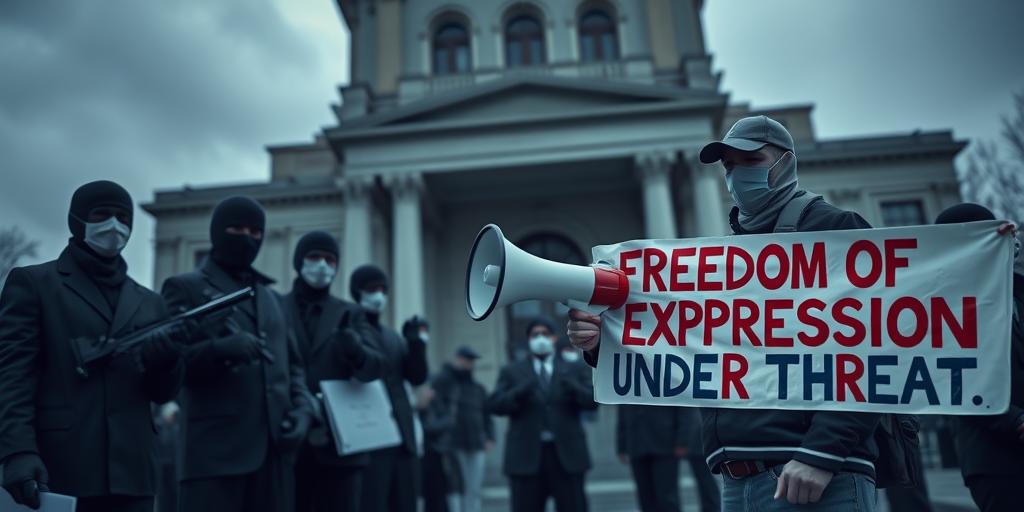In our increasingly digital world, cybersecurity plays a vital role in protecting our online lives. But how does it impact our freedom of expression? This is a complex question that requires careful consideration, as the very measures designed to protect us from cyber threats can sometimes inadvertently curtail our ability to speak freely.
The Intertwined Relationship Between Cybersecurity and Freedom of Expression
The Digital Age and the Evolution of Expression
The internet has revolutionized the way we communicate and share ideas. It has become a powerful tool for activism, journalism, and personal expression. From sharing opinions on social media to organizing online protests, the digital space has empowered individuals to engage in a wide range of activities that were once unimaginable.
Cybersecurity Threats and Their Impact on Free Speech
However, the same digital space that facilitates free expression is also vulnerable to cyber threats. Hackers, malware, and data breaches can disrupt online services, steal personal information, and even silence dissenting voices. These threats can have a chilling effect on free speech, as individuals may hesitate to express themselves for fear of retaliation or censorship.
Censorship and Surveillance in the Name of Security
Government Surveillance and Data Collection
Governments often cite cybersecurity as a justification for increased surveillance and data collection. While these measures may be intended to prevent terrorism or other threats, they can also be used to monitor and suppress political dissent. This raises concerns about the erosion of privacy and the right to anonymous expression.
Internet Censorship and Content Filtering
In some countries, governments use cybersecurity measures to censor online content they deem offensive or harmful. This can include blocking websites, filtering search results, and monitoring social media platforms. While the intent may be to protect citizens from harmful content, such measures can also be used to silence opposition and control the flow of information.
The Chilling Effect on Free Speech
The combination of government surveillance and internet censorship can create a chilling effect on free speech. Individuals may self-censor their thoughts and opinions for fear of reprisal or prosecution. This can lead to a narrowing of public discourse and a stifling of innovation and creativity.
Balancing Security and Freedom: Finding the Right Equilibrium
The Importance of Transparency and Accountability
Finding the right balance between cybersecurity and freedom of expression is crucial. Transparency and accountability are essential to ensure that security measures are not used to infringe on fundamental rights. Governments should be transparent about their surveillance programs and subject to independent oversight.
Protecting Privacy and Promoting Open Dialogue
Protecting privacy is essential for maintaining a free and open society. Strong privacy laws and regulations can help to prevent government overreach and ensure that personal data is not used for unauthorized purposes. Additionally, open dialogue and public debate are essential for fostering a culture of trust and understanding around cybersecurity issues.
The Role of Technology and Innovation
Technology can play a role in both protecting our online security and promoting free expression. Encryption tools, privacy-enhancing technologies, and decentralized platforms can help to safeguard our data and empower individuals to communicate anonymously.
The Future of Cybersecurity and Freedom of Expression
Emerging Technologies and Their Implications
As new technologies emerge, such as artificial intelligence and the internet of things, the relationship between cybersecurity and freedom of expression will continue to evolve. These technologies offer both opportunities and challenges, and it is essential to consider their implications for privacy, security, and free speech.
The Need for Global Cooperation and Collaboration
Addressing cybersecurity threats and protecting freedom of expression requires global cooperation and collaboration. Governments, businesses, and civil society organizations need to work together to develop international standards and best practices for cybersecurity, privacy, and freedom of expression.
Ensuring a Secure and Free Digital World
The future of cybersecurity and freedom of expression is intertwined. We must strive to create a digital world that is both secure and free, where individuals can express themselves freely without fear of censorship or surveillance. This requires a commitment to protecting privacy, promoting transparency and accountability, and harnessing the power of technology for good.




